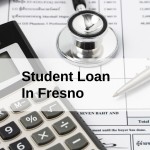Exploring Career Prospects After Obtaining a Master’s Degree in the U.S.
Congratulations on completing your Master's degree in the United States! Now, as you embark on the journey of transitioning from academia to the professional world, you're likely eager to explore the plethora of career opportunities that await you. In this guide, we'll delve into various aspects of post-graduate career prospects, from high-demand fields and competitive salaries to considerations like work-life balance and cultural integration.
High-Demand Fields & Competitive Salaries
STEM Advantage Opportunities & OPT Visa
In the contemporary job market, STEM (Science, Technology, Engineering, and Mathematics) fields continue to dominate in terms of demand and compensation. Industries such as software engineering, data science, cybersecurity, and biotechnology are experiencing exponential growth, offering lucrative career paths for graduates with relevant qualifications.
One significant advantage for international students in STEM disciplines is the Optional Practical Training (OPT) visa program, which allows them to gain valuable work experience in the U.S. for up to three years post-graduation. This not only provides an opportunity to apply theoretical knowledge in real-world settings but also enhances prospects for securing H-1B visa sponsorship or permanent employment in the country.
Beyond Specialized Degrees Versatility & Transferable Skills
While specialized degrees undoubtedly offer advantages in certain fields, there's increasing recognition of the value of interdisciplinary skills and versatility. Employers often seek candidates with a diverse skill set, including strong communication, problem-solving, and leadership abilities, which can be honed through various academic and extracurricular activities.
Moreover, transferable skills acquired during your Master's program, such as critical thinking, research proficiency, and adaptability, are highly sought after across industries. So, don't underestimate the potential of your broader skill set when exploring career opportunities.
Networking & Career Services Navigating the Job Market
Networking plays a pivotal role in securing employment opportunities, particularly in competitive fields. Take advantage of alumni networks, industry events, and professional platforms like LinkedIn to connect with professionals in your desired field. Additionally, leverage career services offered by your university, which may include resume workshops, mock interviews, and job fairs tailored to graduate students.
Building a strong professional network not only increases your visibility to potential employers but also provides valuable insights into industry trends and job market dynamics.
Location & Regional Variations Targeting Opportunities
The job market varies significantly depending on geographic location and industry concentration. While major metropolitan areas like San Francisco, New York, and Boston offer a plethora of opportunities across sectors, don't overlook emerging tech hubs or niche markets in other regions.
Consider factors such as cost of living, job demand, and cultural fit when targeting specific locations. Keep an open mind and be willing to explore opportunities beyond traditional hubs to find the best match for your career goals and lifestyle preferences.
Specialization vs. Generalization Finding the Right Fit
The age-old debate between specialization and generalization often surfaces when contemplating career paths. While specialization can lead to expertise in a particular niche and potentially higher earning potential, generalization offers flexibility and adaptability across various roles and industries.
Ultimately, the right approach depends on your interests, career aspirations, and market demand. Assess your strengths, preferences, and long-term goals to determine whether diving deep into a specialized field or maintaining a broader skill set aligns better with your career trajectory.
Entrepreneurship & Innovation Starting Your Own Venture
Entrepreneurship presents an exciting avenue for ambitious graduates keen on innovation and creating tangible impact. The U.S. boasts a vibrant startup ecosystem with ample resources, funding opportunities, and support networks for aspiring entrepreneurs.
If you have a groundbreaking idea or a passion for solving pressing challenges, consider launching your own venture. Collaborate with like-minded individuals, seek mentorship from experienced entrepreneurs, and leverage resources such as incubators, accelerators, and startup competitions to turn your vision into reality.
Research & Academia Pursuing Further Studies or a Research Career
For those inclined towards academia or research-oriented roles, pursuing further studies or engaging in postdoctoral research can be a fulfilling career path. Doctoral programs offer the opportunity to delve deeper into a specific field of study, conduct original research, and contribute to the advancement of knowledge in your chosen discipline.
Additionally, positions in academia, such as tenure-track faculty or research scientists, provide avenues for intellectual stimulation, mentorship, and professional growth. Explore opportunities at universities, research institutions, or government agencies that align with your research interests and career aspirations.
Work-Life Balance & Cultural Integration
Amidst the pursuit of professional success, it's essential to prioritize work-life balance and cultural integration. Balancing the demands of work with personal interests, hobbies, and relationships is crucial for overall well-being and career longevity.
Take time to explore your new surroundings, immerse yourself in local culture, and build a support network of friends and colleagues. Embrace opportunities for personal growth, whether through travel, volunteer work, or pursuing hobbies outside of work.
Student Loan Forgiveness & Repayment
Navigating student loan repayment can be daunting, especially as you transition into the workforce. Understanding your options for loan forgiveness, repayment plans, and financial assistance programs is essential for managing debt effectively.
Student Loan Forgiveness Programs
Several student loan forgiveness programs exist to alleviate the burden of educational debt for qualifying individuals. These programs typically target specific professions, such as public service, education, healthcare, or nonprofit work, and may require a commitment to service for a certain period in exchange for loan forgiveness.
Explore programs like Public Service Loan Forgiveness (PSLF), Teacher Loan Forgiveness, Nurse Corps Loan Repayment Program, or Income-Driven Repayment (IDR) plans to determine eligibility and benefits applicable to your situation.
Employer Assistance & Repayment Benefits
Many employers offer best student loan assistance as part of their employee benefits package to attract and retain top talent. These benefits may include direct financial contributions towards loan repayment, employer-sponsored repayment programs, or matching contributions to employee payments.
When evaluating job offers, consider the presence of discover student loan benefits as part of your overall compensation package. Factor in the value of these benefits along with salary, healthcare coverage, and other perks to make informed decisions about your employment options.
Financial Planning & Budgeting
Developing a sound financial plan and budgeting strategy is essential for managing student loan debt and achieving long-term financial stability. Assess your current financial situation, including income, expenses, and existing debt obligations, to determine a feasible repayment strategy.
Consider options such as refinancing student loans for lower interest rates, consolidating multiple loans into a single payment, or prioritizing repayment based on interest rates or loan terms. Additionally, explore opportunities to increase income through side hustles, freelance work, or passive income streams to accelerate debt repayment.
Seeking Professional Guidance
If you're feeling overwhelmed or uncertain about navigating student loan repayment, don't hesitate to seek professional guidance from financial advisors or student loan experts. They can provide personalized advice, explore repayment options tailored to your circumstances, and help you develop a comprehensive financial plan for achieving your goals.
Take advantage of resources offered by your university, alumni networks, or reputable financial institutions to access expert advice and support throughout your student loan repayment journey.
Embarking on a post-graduate career journey after obtaining a Master's degree in the U.S. is an exciting and transformative experience. By leveraging your education, skills, and resources available to you, you can navigate the job market effectively, pursue rewarding opportunities, and achieve professional success.














